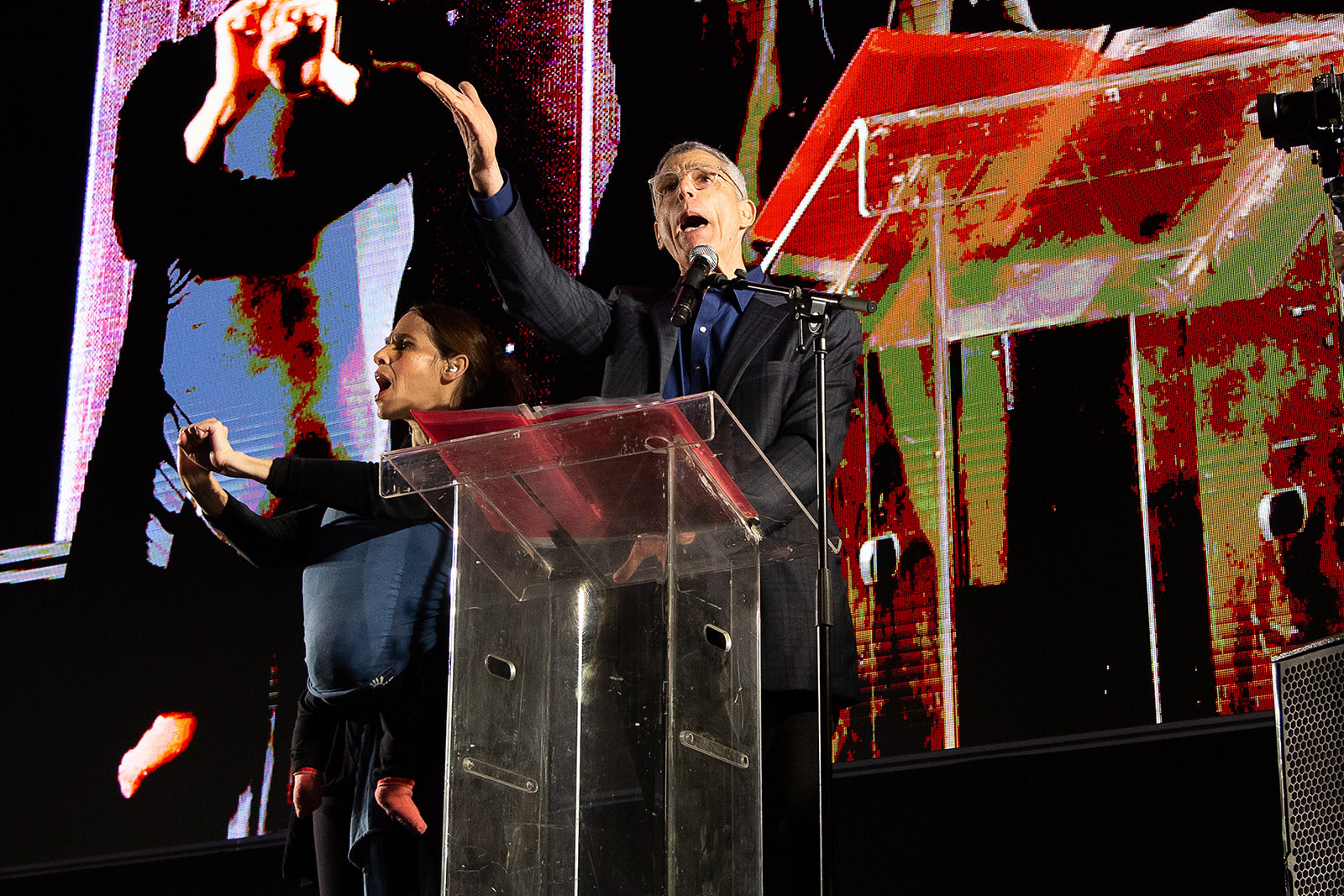For Israel’s Reform Jews, no need to follow US peers in ordaining rabbis in interfaith marriages
JERUSALEM (RNS) — As president of the Reform movement’s Hebrew Union College-Jewish Institute of Religion, Andrew Rehfeld has met many prospective rabbinical students. Yet he still remembers a candidate that HUC could not accept.
“She was an exceptional human” who became passionate about Judaism while serving in the military, Rehfeld said. But there was one insurmountable problem: Her partner wasn’t Jewish.
“She asked if our prohibition against ordaining rabbis with a non-Jewish partner or spouse was still in force. This was in 2020. She said, ‘My partner’s not Jewish, and although he’s very interested in Judaism, he’s not willing to convert at the moment, and I’m not willing to give him up as a partner.’”
Unfortunately, Rehfeld said, “we had to say no to this student and our movement lost her.”
Last month, the American branch of HUC reversed the prohibition against ordaining rabbinical and cantorial students with non-Jewish spouses. The move, which is not binding on HUC’s Israel Rabbinical Program, or IRC, reflects the reality that the majority of Reform Jews — the largest Jewish denomination in North America — are married to non-Jews.
“In North America, marrying a non-Jew is no longer a statement of alienation, as it once was, from the Jewish community,” Rehfeld said.

Andrew Rehfeld. (Photo courtesy Hebrew Union College)
At least in non-Orthodox circles.
According to a 2020 survey of Jewish Americans by the Pew Center, 98% of married American Orthodox Jews reported having a Jewish spouse. “Looking only at non-Orthodox Jews who had gotten married since 2010, 72% were intermarried,” the survey said.
That is not the case in Israel, where nearly three-quarters of the population is Jewish and an estimated 5% of Jews are intermarried. In most of these cases, the non-Jewish spouse is descended from a Jewish grandparent but is not considered Jewish according to the Chief Rabbinate.
While the Israeli Reform movement promotes the values of liberal Judaism, it is much more traditional than its North American counterpart.
Rabbis ordained by IRC are not permitted to perform intermarriages or same-sex marriages, and if a non-Jew wants to marry a Jew, the rabbi encourages the non-Jewish partner to convert to Judaism. Furthermore, students cannot be ordained if their spouse or partner isn’t Jewish.
HUC’s June decision will not change that, said Nachman Shai, dean of the Israel Rabbinical Program.
“Israel and America are different. In America there is a high rate of interfaith marriages. Here, that issue is irrelevant to us, so it isn’t on our agenda,” Shai said. To his knowledge, the issue of an intermarried student has never come up.
“HUC is an institution operating in two ecosystems,” Rehfeld acknowledged, adding that it recognizes the different cultural and religious norms that exist in North America and Israel. “In Israel, the choice to marry a non-Jew is not seen as a path to create a Jewish family.”
While framing intermarriage as a means of strengthening the Jewish community may seem counterintuitive, HUC insists having a non-Jewish spouse is not tantamount to “marrying out.”
“While we recognize that clergy are role models, and that marrying within the Jewish community is highly predictive of future Jewish engagement, we also recognize that many Jewish individuals with non-Jewish partners maintain a Jewish family and home in which Judaism exclusively is practiced and are deeply engaged with Jewish communal life and peoplehood. We believe we should welcome these individuals into HUC-JIR and into leadership roles in Jewish communities,” HUC’s leadership said in a statement announcing the decision.
The college “will continue to expect students to commit to meaningful and substantive Jewish choices, including maintaining an exclusively Jewish home and family, and will add a new provision that students with children are expected to raise them exclusively as Jews engaged with Jewish religious practice, education, and community,” the statement said.
Those who cannot commit to having a solely Jewish-oriented home will not be accepted to HUC, Rehfeld underscored.
As it is, the new rule will likely affect only “a small group” of applicants, Rabbi Rick Jacobs, president of the Union for Reform Judaism, predicted.
Jacobs, who was himself a pulpit rabbi for almost 30 years, said many of HUC’s recently ordained rabbis and cantors grew up in interfaith households. “There’s an assumption — not shared by the movement — that the commitment of those from interfaith families to Judaism will be less than, but these are among the best rabbis and cantors on Planet Earth. And many of our lay leaders are in interfaith marriages and are very involved in Jewish life.”
Furthermore, some non-Jewish spouses decided to convert to Judaism after experiencing the richness of Jewish family life, Jacobs said.
Sara Yael Hirschhorn, visiting professor at the University of Haifa Ruderman Center for American Jewish Studies, fears the clergy-partner decision will widen the already wide gap between Jews in North America and Israel.
“Some are saying that the decision is a way to meet the Jews in North America where they are, but I think it’s also indicative that Israel and its norms aren’t a priority for American Jews,” Hirschhorn said.
Anna Kislanski, CEO of the Israel Reform Movement, isn’t troubled by the very different ways Reform Jews in North America and Israel practice their faith.
“I totally understand where it’s coming from,” Kislanski said of the decision. “I think the ‘big tent’ approach of the Reform movement in the U.S. has helped make it the largest stream in Judaism.”
If Israelis were facing the same challenges as their American counterparts “we might have come to the same conclusion, but that is so far from our reality,” Kislanski said.







